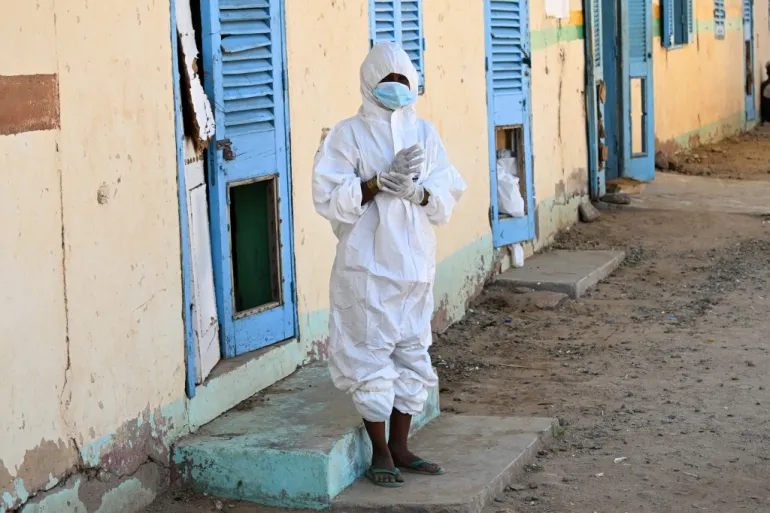A cholera outbreak in Sudan’s war-torn capital has killed 70 people in two days, health officials said Thursday, as Khartoum faces a growing health crisis after more than two years of conflict.
The Khartoum state health ministry reported 942 new infections and 25 deaths on Wednesday, following 1,177 cases and 45 deaths on Tuesday.
The surge comes weeks after drone strikes, blamed on the paramilitary Rapid Support Forces, knocked out water and electricity supplies across the capital. The city has been a battleground since fighting erupted in April 2023 between Sudan’s military and the RSF.
The military-backed government announced last week that it had pushed RSF fighters from their last bases in Khartoum state, two months after retaking the city center. But the capital remains in ruins, with health and sanitation systems barely functioning. Up to 90% of hospitals in the worst-hit areas have been forced to close.
The cholera outbreak has further strained Sudan’s collapsing health system.
The federal health ministry reported 172 deaths in the week ending Tuesday, with 90% in Khartoum state. Authorities say 89% of patients in isolation centers are recovering but warn that worsening sanitation is driving the spread of the disease.
U.N. Secretary-General Antonio Guterres’ spokesman said cholera vaccinations have begun in Jebel Awlia, Khartoum’s hardest-hit district. The World Health Organization has delivered 22 metric tons of cholera treatment supplies and emergency medical aid, spokesperson Stephane Dujarric said.
The U.N. humanitarian agency, OCHA, noted “significant discrepancies” in official data, making it difficult to assess the outbreak’s true scale.
Cholera is endemic in Sudan, but outbreaks have grown more severe and frequent since the war began. Since August 2024, health authorities have recorded over 65,000 cases and 1,700 deaths across 12 of Sudan’s 18 states.
Khartoum state alone has seen more than 7,700 cases, including over 1,000 in children under 5, and 185 deaths since January.
“Sudan is on the brink of a full-scale public health disaster,” said Eatizaz Yousif, the International Rescue Committee’s Sudan director. “The combination of conflict, displacement, destroyed infrastructure and limited clean water is fueling cholera and other deadly diseases.”
Aid agencies warn that without urgent action, the outbreak could worsen with the rainy season’s arrival next month, which often cuts off access for humanitarian workers.
The war has killed tens of thousands and displaced 13 million people since April 2023. Over 3 million fled Khartoum state, though 34,000 have returned since the military regained control in recent months, according to U.N. figures. Many find their homes destroyed, with no clean water or basic services.
UNICEF says more than 1 million children are at risk in cholera-affected areas of Khartoum.




